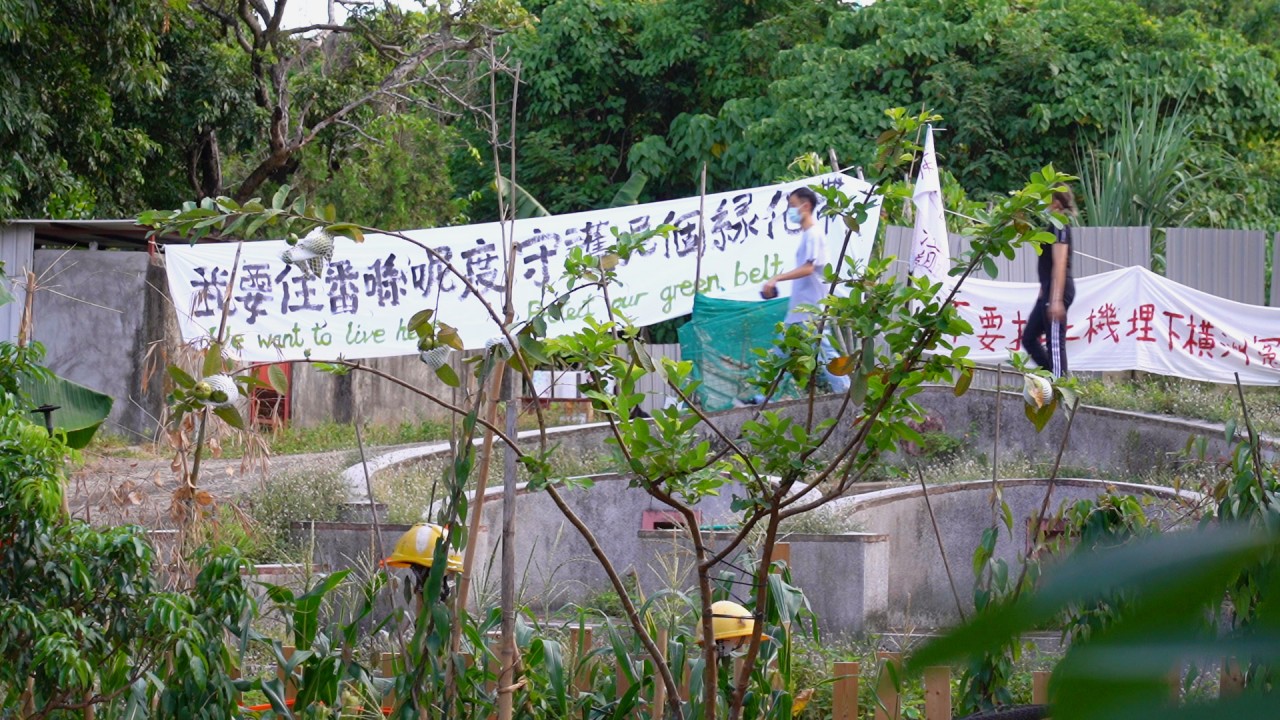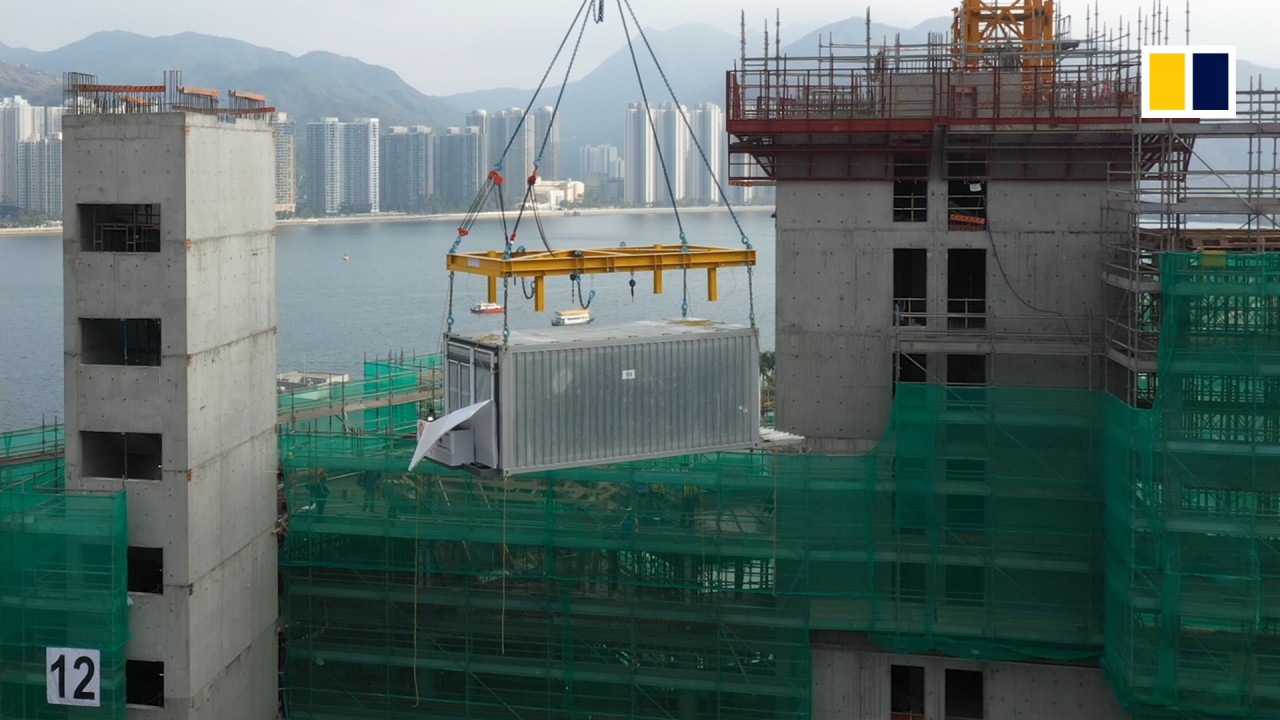
Why we can’t solve Hong Kong’s housing crisis
- If Beijing’s electoral rollback is the stick while the push to resolve the housing problem – among other livelihood issues – is supposed to be the carrot, then most likely, Hong Kong people will end up with a heavy stick over their heads rather than a proper roof
There is now an orthodox view on the problem plaguing Hong Kong. If only the city can resolve its livelihood problems, chief among which is unaffordable housing, everything will be hunky-dory.
Since then, Beijing’s allies in Hong Kong have been nodding their heads in agreement. Property tycoon Gordon Wu Ying-sheung has declared: “If the city wants prosperity, we must handle livelihood problems seriously, especially housing concerns, or the government will fail to win people’s hearts and find the city hard to administer.”
This view is, of course, not new. What is different is that the central government is giving it a special push as it cracks down on the local opposition and anti-government movement. Think of it as the carrot and the stick for Hong Kong people.

04:11
Tiny 290sq ft temporary housing a welcome upgrade for some low-income Hong Kong families
Unfortunately, it’s easy to deliver the stick; much more difficult to offer this particular carrot. It’s not like the local government hasn’t been trying for the better part of the last decade, with little to show for it.
There are several key reasons:
● The Hong Kong government is fundamentally at odds with itself. Its policies aim to encourage home ownership and make it affordable. Unfortunately, the two goals contradict each other, especially so in an era of loose monetary policy (transmitted directly from the US via the dollar peg), easy borrowing and asset inflation or bubbles.
Perhaps the only mild success that the central and local governments can claim in resolving one possible cause of high property prices is to have attacked the so-called property hegemony of the local tycoons and their family businesses. One reason is that they are either dead or dying, and their second or third generation offspring don’t have anywhere the political and market clout their families used to command. Meanwhile, “red property capital” from the mainland is taking their place in Hong Kong.
How Hong Kong can resolve its land supply, housing shortage in next decade
There is also the fact that the tycoons’ influence within the Election Committee for the chief executive is set to be diluted as its number will expand from 1,200 to 1,500, making whoever is elected less beholden to the property and business sectors.
But we have likely confused the effect for the cause where “property hegemony” is the outcome of long-standing government policies and both external and internal conditions in Hong Kong. We are not the only ones suffering from unaffordable housing. In fact, practically every major city around the world has had the same problem; we just happen to be among the worst.
Of 500-plus cities around the world tracked by Numbeo, an international database collector funded by crowdsourcing, literally only a handful are “affordable” if we define affordability as not more than three times the median household income of a particular locale.
That alone casts doubt on the claim that the housing crisis caused widespread social unrest in Hong Kong, and also on the belief that it is somehow unique to the city.

06:35
Hong Kong villagers vow to resist eviction over controversial Wang Chau public housing plan
In fact, this carrot and stick approach has long been championed by the more authoritarian of governments, including those that are nominally democratic. This has been the playbook of Viktor Orban, the nationalistic prime minister of Hungary and his right-wing political party Fidesz, as well as Polish President Andrzej Duda and the Law and Justice Party. You can call it a social contract if you want to put a nicer label on it.
In other words, Hong Kong is coming rather late in the game. This does not mean it’s wrong to do so, as anything that can improve the housing and living standards of locals should be welcome, especially when you are taking away their political rights.
To be fair, land supply is not the only focus of the Hong Kong government. An instructive study by the Bank of International Settlement of how the Monetary Authority of Singapore uses “macroprudential” measures to stabilise home prices may also apply to Hong Kong, as we have practically used the same toolkit in recent years to slow flat price rises. That is so even if our monetary authority does not have the same independence as Singapore’s because of the currency board and has not applied those same tools with comparable severity.
Opinion: Singapore is no model for Hong Kong housing
Among tools listed in the study are: restrictions on individual borrowing, on first housing loan and increasingly restrictive on second, third or more mortgages and/or properties; limits on debt service; banning interest-only loans; restricting loan durations; limiting mortgage servicing and total debt servicing ratios; heavy stamp duties on both buyer and seller; minimal lock-in period before sales; additional buyer’s stamp duty for foreigners; higher tax rates.
None of these anti-bubble measures have really worked in Hong Kong. Interestingly, New Zealand, under Prime Minister Jacinda Ardern, has just mandated its central bank to include housing in rate setting, to stabilise rocketing home prices.
The Hong Kong government may consider reviving the proposed vacancy tax on developers that was shelved last year, though it looked more like a penalty on developers than a measure that would have had any real effect on home supply and prices.
And perhaps the government can encourage people to rent rather than own, as Germany and Canada have done by legislating leases that disproportionately favour tenants over owners. Even so, their largest cities still have high property prices.

02:08
Prefabricated flats quickly take shape in Hong Kong as city tries out new construction technique
A big problem is that all over the world, the central banks of major economies, led by the US Federal Reserve, have declared victory by suppressing consumer price inflation while letting asset inflation, from stocks and bonds to homes, run wild. That and low taxes; and hence the phenomenon of the “one per cent”, of extreme economic inequalities and the disappearance of the middle class. That is happening whether or not your country is democratic.
And the problem in Hong Kong is that any effective measures that would bring down flat prices amount to wealth destruction for half of the population that own their homes. That is deemed too socially destabilising, even though our home ownership level – at 51 per cent – is much lower than those of many developed economies: Singapore (90 per cent), Taiwan (85 per cent), Australia (63 per cent), Japan (61 per cent), South Korea (59 per cent), the European Union (69 per cent), Britain (65 per cent) and the United States (63 per cent).
Arguably, we can afford a bit of “wealth destruction” if that means making homes more affordable to the younger generation, whose share of home ownership, in terms of percentages, has shrunk from double to single digits since the 1997 handover. It’s unlikely, though, that any Hong Kong government would bite the bullet to take such a big risk.
Perhaps, in the end, only a big market crash will bring down prices. But then everyone will be poorer anyway; and in the meantime, less free politically than before.

